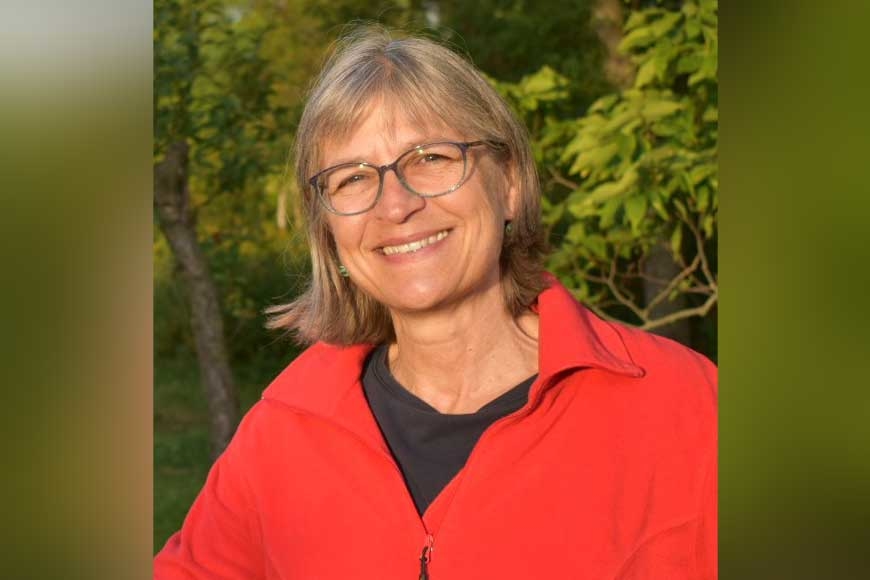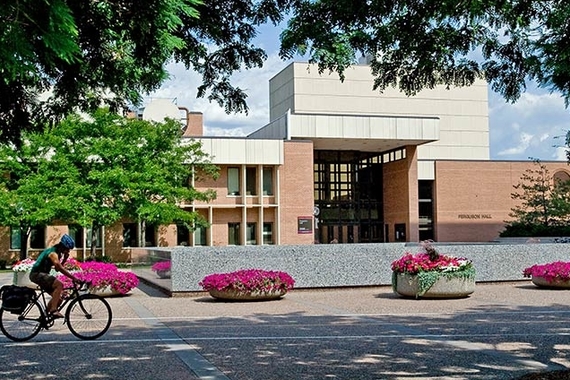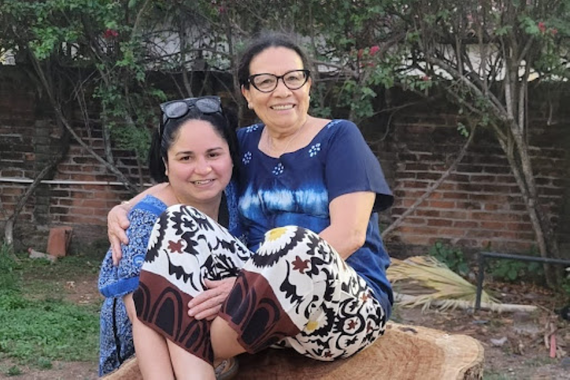The Fourth Homecoming: Kirsten Fischer Turns a Historian’s Lens to Her Family’s Past
What if you could visit your grandparents on a trip back in time? What would you ask? What would you do? “The project started for me,” says Kirsten Fischer, “with wanting to understand why I’m drawn to a place that never felt like home.” For historians like Fischer, a professor in the Department of History, looking back is only the beginning. In her most recent research project, Fischer visits 20th-century Germany, and finds herself in the shoes of her past family members.
Secrets in the Family
Fischer has been a professor of American history at the University of Minnesota since 2000. She’s written about slavery and racism in one book, and about religious freedom in the early US in another. In 2011, she won the Horace T. Morse award for outstanding contributions to undergraduate education. Her most recent project is a departure from her usual beat of American history, but it hits quite close to home.
“It’s a memoir involving my father’s side of the family,” she says. “There are secrets in my family that I’m still trying to uncover, and I’m curious about what happens to our sense of belonging when it’s troubled in certain ways.” With “a focus on displacement by war, political division, and voluntary migration,” Fischer’s work-in-progress promises to question what home really is, and what brings us back to it.
“It’s a quest for a sense of belonging. It’s about rootedness and uprootedness, and how these things get passed down in families,” Fischer explains. “It’s also very much about 20th-century Germany.”
Never at Home
Despite her heritage, Fischer didn’t always connect to her father’s home country. He had fled East Germany as a teenager. “He described it as an open-air prison,” she recalls, “and he fled at the age of 19, eventually making his way to America.”
And then, “to everyone’s surprise, when I was twelve,” she says, “my father decided we all needed to move to West Germany.” A plane ride later, Fischer and her family were living with her grandparents in Hamburg. In the eight years that followed, she learned German and attended local schools. But even with family, stability, and shelter, it didn’t quite sit right. “I never really felt at home in Germany,” Fischer says.
Part of a Pattern
As soon as Fischer was old enough, she left for the US to attend college and graduate school, specializing in American history. She started a family, and had a daughter of her own. “I was going to stay here,” Fischer thought, and her time in Hamburg would stay in the past. But, for historians, the past always beckons.
“Suddenly,” Fischer says, “I decided that it was really important that we, as a family, spend time in Germany.” Like father, like daughter, Fischer was compelled to return to that country. She wanted her child to learn the language and understand the culture. But she couldn’t quite figure out why.
“Why was I returning to this place that I had never particularly enjoyed?” she pondered. “Somewhere I didn’t really consider home?”
The answer was in a box. “It was a box of my grandmother’s things,” Fischer remembers. She found all sorts of objects: letters and postcards and pictures. Most of them held family memories. All of them were clues about the past. A great-grandfather sent to a Siberian POW camp in WW I. A grandfather in an American POW camp after WW II. And her father, leaving communist East Germany as a refugee in 1950.
“I began to understand that in my father’s family, there have been three generations of exile and return. And I was the fourth one…I was part of a pattern,” Fischer had realized, “and I began to wonder, who are these people I’m related to? How have their experiences been handed down to me in ways I hadn’t fully understood? What can I learn from their experiences, especially about dictatorship and war, and would I make different choices, given the chance?”
We Are All Historical Figures
A good history book will tell you what happened. But a good memoir will take you there. Fischer’s forthcoming memoir offers readers insight into war, dictatorships, and how family lessons of survival are passed down over the generations.
“We are all historical figures,” Fischer says. “Each of us, as we live our lives, are already shaped by things larger than ourselves and our families.” Whether we know it or not, we are always living in an unfolding history, and the past is, more often than not, a co-author to the story of our lives.
“There are many ways to write history,” Fischer says, “but right now, I find the most compelling stories to be the ones where people understand themselves as part of a much larger moment.”



